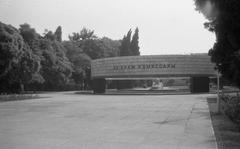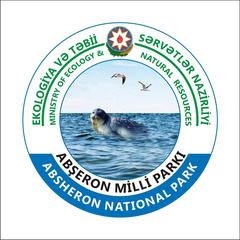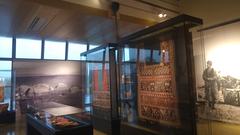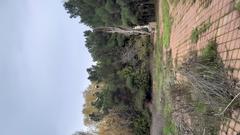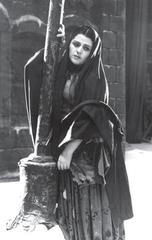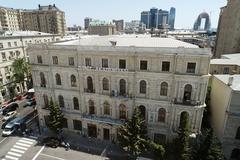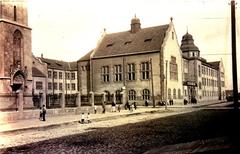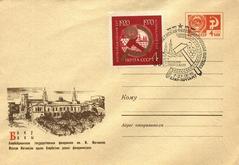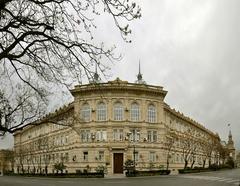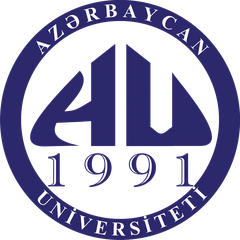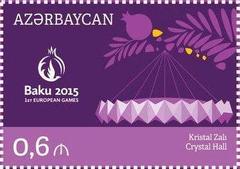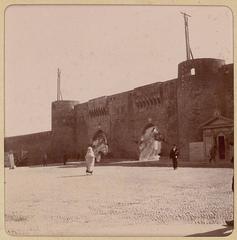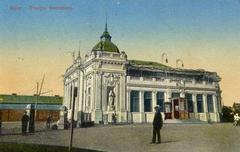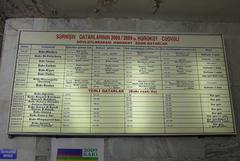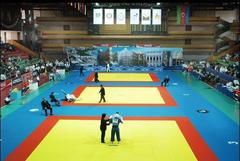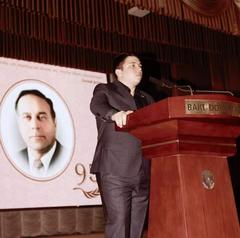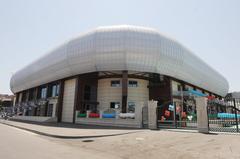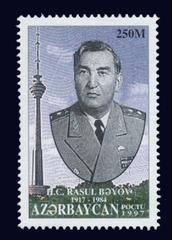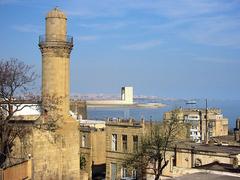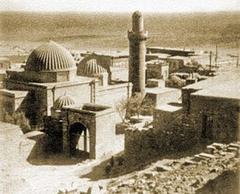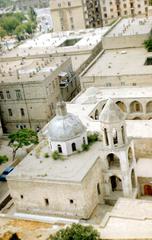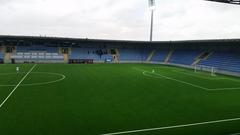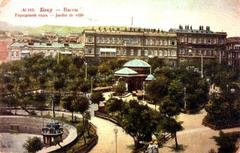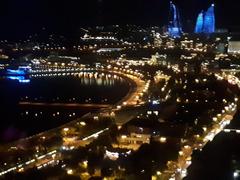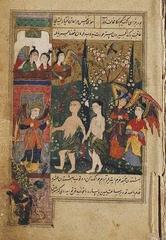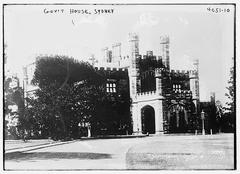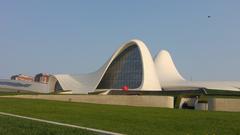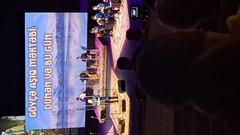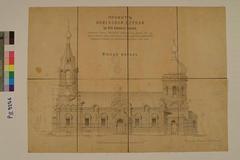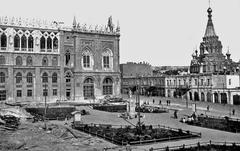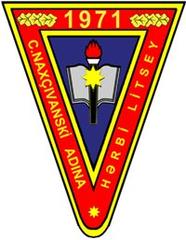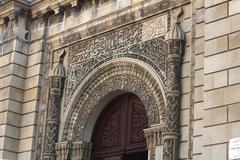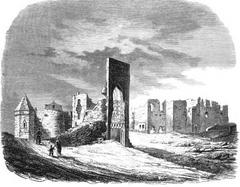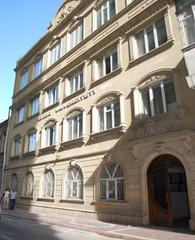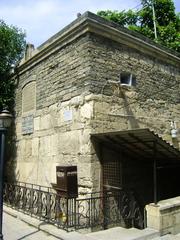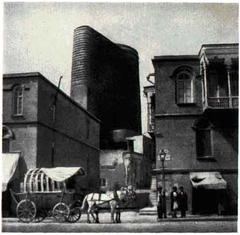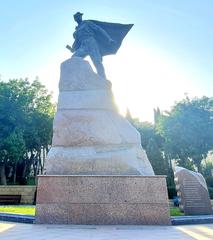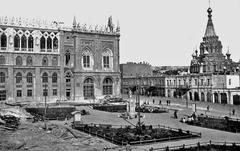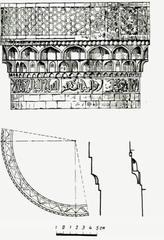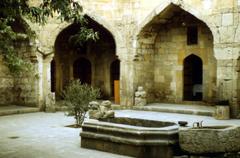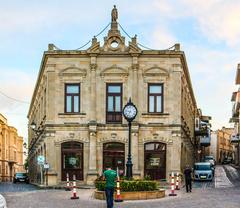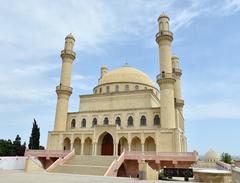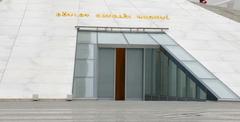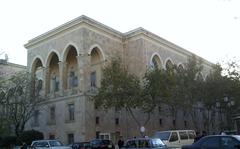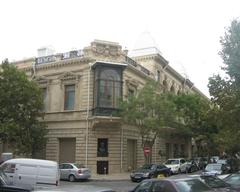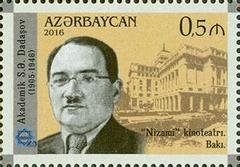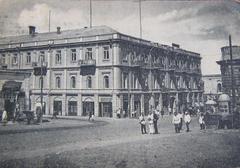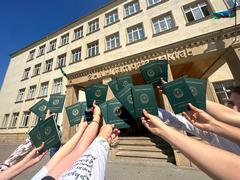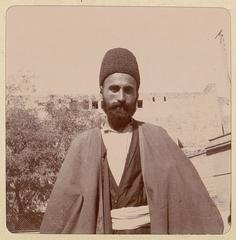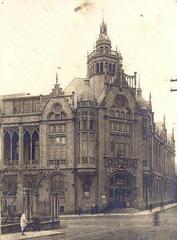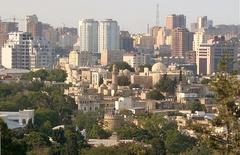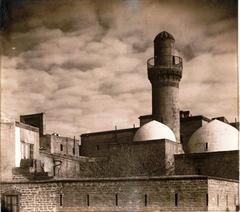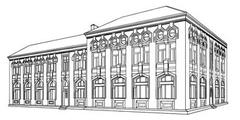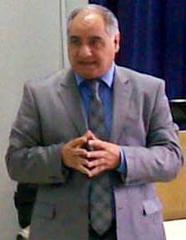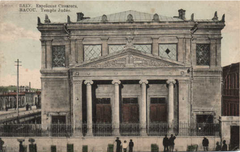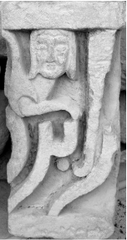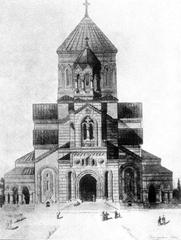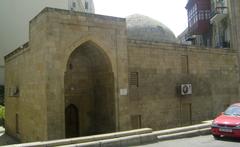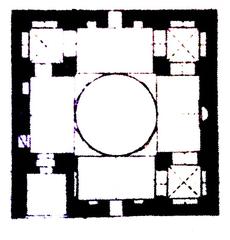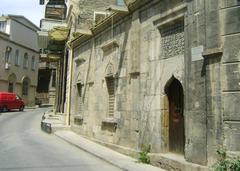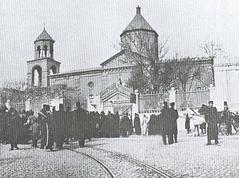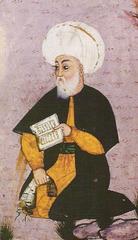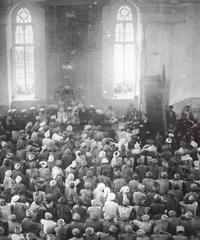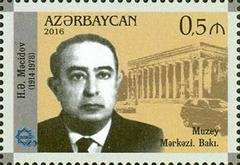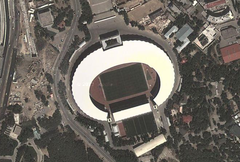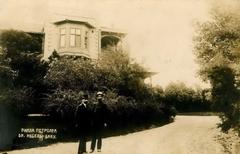Tafakkur University Visiting Hours, Ticket Guide, and Baku Historical Sites
Date: 15/06/2025
Introduction: Tafakkur University’s Historical Role in Baku
Tafakkur University, formerly located in Baku, Azerbaijan, was a pioneering private higher education institution that emerged in the early 1990s, symbolizing Azerbaijan’s aspirations for modernizing and internationalizing its academic landscape after independence from the Soviet Union. The university broke new ground by offering programs in business, international relations, engineering, and the social sciences—fields that were previously underrepresented in state-run institutions. By fostering interdisciplinary studies and forging international partnerships, Tafakkur University became a notable center for cultural exchange and academic development in Baku.
Although Tafakkur University ceased operations in 2017 due to accreditation challenges and financial pressures, its influence remains a key chapter in Azerbaijan’s educational evolution. For those interested in the history of private higher education in Azerbaijan, understanding the rise and closure of Tafakkur University provides valuable insights into the country’s shifting academic standards and broader educational reforms. This guide details the university’s historical background, academic contributions, legacy, and practical visitor information, while also highlighting notable attractions in Baku to enrich the educational and cultural experience. (Visiting Tafakkur University in Baku: History, Tours, and Visitor Information, Tafakkur University Closure: Causes, Impact, and Legacy)
Contents Overview
- Introduction
- Historical Background and Development
- Origins and Establishment of Tafakkur University
- Education in Azerbaijan: A Brief Overview
- Role of Private Universities
- Academic Growth and Institutional Development
- Visitor Information: Planning Your Visit
- Visiting Hours and Access
- Guided Tours and Visitor Experience
- Accessibility
- Tickets and Special Events
- Nearby Attractions in Baku
- Cultural and Societal Impact
- Frequently Asked Questions (FAQ)
- Conclusion
Tafakkur University in Baku: History, Tours, and Visitor Information
Historical Background and Development
Origins and Establishment
Founded in the early 1990s following Azerbaijan’s independence, Tafakkur University was among the first private universities to offer an alternative to the centralized Soviet education system. Its foundation reflected a push to diversify higher education with innovative programs that addressed new academic and professional demands. The university responded to a growing need for specialized training and greater global engagement among Azerbaijani students.
Education in Azerbaijan: Historical Overview
Azerbaijani education has a rich history, with roots in ancient Zoroastrian schools and Islamic madrasahs. Under Soviet administration, education became highly centralized, emphasizing technical skills and state-directed curricula. Post-independence reforms have focused on integrating international standards and fostering a modern, multilingual academic environment.
Private Universities: Their Role and Impact
Private universities like Tafakkur led the way in introducing contemporary academic disciplines, updated teaching methods, and international collaborations. They opened doors to programs in business, IT, and international affairs—areas previously unavailable in state universities—thus helping to shape a more globally oriented generation of professionals.
Academic Growth and Development
Tafakkur University offered a range of bachelor’s, master’s, and doctoral programs across sciences, humanities, engineering, and social sciences. Admission required passing the national State Students Admission Examination (SSAE), reflecting its reputation for academic rigor. The university was equipped with modern laboratories, research centers, and fostered active partnerships with institutions abroad to promote student and faculty exchanges.
Visitor Information: Planning Your Visit
Visiting Hours and Access
During its operational years, Tafakkur University welcomed visitors Monday to Friday, 9:00 AM–6:00 PM. Guided tours were available by prior arrangement, and general campus visits did not require an entrance fee.
Guided Tours and Visitor Experience
Tours provided visitors with insights into the university’s academic philosophy, campus life, and modern facilities. Guests could interact with students and faculty, view lecture halls and research centers, and enjoy the blend of modern architecture and landscaped green spaces.
Accessibility
The campus was designed with accessibility in mind, offering ramps and elevators for visitors with disabilities. Advance notice to visitor services was recommended for special accommodations.
Tickets and Special Events
While routine campus visits did not require tickets, special events such as academic conferences, seminars, and cultural festivals often required advance registration. Event details were regularly updated on the university’s website and social media platforms.
Nearby Attractions in Baku
Visitors to Tafakkur University often explored nearby cultural and historical sites, including:
- Old City (Icherisheher): UNESCO-listed, with ancient architecture and winding alleys.
- Flame Towers: Modern architectural icons with panoramic city views.
- Caspian Sea Promenade: Ideal for walks and leisure, offering scenic waterfront vistas.
These attractions provide a broader context for understanding Baku’s blend of history and modernity.
Cultural and Societal Impact
Tafakkur University’s legacy includes its role in promoting cultural exchange through international academic partnerships, a diverse student body, and public events. Its innovative programs and cosmopolitan campus environment contributed to the intellectual vibrancy of Baku.
The Maiden Tower: Baku’s Iconic Historical Monument
Introduction
The Maiden Tower, located in Baku’s Old City (Icherisheher), stands as one of Azerbaijan’s most famous historical monuments. Dating back to the 12th century—with possible earlier origins—it captivates visitors with its mysterious history, unique cylindrical architecture, and panoramic city views. The tower is both a symbol of Baku and a designated UNESCO World Heritage site.
Visiting Hours and Admission
- Summer (April–October): 9:00 AM to 7:00 PM
- Winter (November–March): 10:00 AM to 5:00 PM
- Last admission: 30 minutes before closing
Tickets:
- General admission: ~6 AZN
- Students/Seniors: Discounted with valid ID
- Children under 6: Free
Tickets are available at the entrance or online via official tourism platforms. Guided tours include ticket fees and offer deeper historical context.
Historical Significance and Architecture
The Maiden Tower’s origins are debated—potentially a defensive structure, Zoroastrian temple, or observatory. Standing 29 meters tall, its thick stone walls and unique cylindrical form make it architecturally distinctive. The tower features narrow interior staircases and an observation platform with sweeping views over Baku and the Caspian Sea.
Visitor Experience
Guided tours are offered in multiple languages, enhanced with audio guides and informational plaques. The visitor center provides assistance, and nearby facilities include souvenir shops and cafes. Although accessibility is limited due to the tower’s ancient structure, ramps and staff assistance are available at the entrance.
Nearby Sites
- Shirvanshahs’ Palace
- Baku Mosque
- Ancient city walls and gates
These, along with the Maiden Tower, provide a comprehensive experience of Baku’s historic city center.
Tips and FAQs
- Wear comfortable shoes for stairs and uneven surfaces.
- Best photography opportunities: sunrise and sunset.
- Visits last 1–2 hours on average.
- Children are welcome but should be supervised.
- Photography is allowed, though special permission may be needed for drones or tripods.
For more information and virtual tours, consult the official Baku tourism website.
Tafakkur University Closure: Reasons, Impact, and Legacy
Closure and Accreditation Challenges
Tafakkur University, established in 1992, sought to modernize Azerbaijan’s higher education through international partnerships and diverse programs. By 2016, the university faced significant accreditation issues. The Ministry of Education planned to reassess its accreditation, but the university’s founders preemptively requested suspension of operations due to financial difficulties. The Ministry approved closure effective July 2017. Without accreditation, the university lost the right to enroll students or grant recognized diplomas and was removed from the official list of higher education institutions.
Student Transfers and Administrative Actions
To protect student interests, the Ministry of Education established a working group to oversee student transfers. Around 190 students were successfully relocated to other accredited institutions, ensuring their academic progress was preserved. Tuition fees at Tafakkur ranged from AZN 1,000 to 3,000. No new admissions were accepted after the accreditation was lost.
Context: Private Universities in Azerbaijan
The closure of Tafakkur University reflects broader challenges faced by private universities in Azerbaijan, such as maintaining academic standards, financial sustainability, and public trust. While private institutions brought much-needed innovation, many struggled with infrastructure and governance, leading to increased scrutiny and regulatory reforms.
Legacy and Contributions
Despite its closure, Tafakkur University’s legacy includes launching specialized programs in international relations and creating academic partnerships with universities in the US, Turkey, Germany, and other countries. These collaborations advanced internationalization in Azerbaijani higher education and set precedents for future private institutions.
Campus Status and Visitor Information
As of June 2025, Tafakkur University remains permanently closed. Its campus is not open to the public, and no official tours or commemorative events are held. Those interested in Azerbaijan’s educational heritage are encouraged to visit operational institutions like Baku State University or ADA University.
FAQs
- Why did Tafakkur University close?
Due to the expiration and non-renewal of accreditation, combined with financial difficulties. - Are Tafakkur University degrees valid?
Diplomas granted before closure are valid; incomplete studies are not recognized. - Where did students transfer?
The Ministry of Education arranged transfers to other accredited universities. - Can the public visit the campus?
No, the campus is closed.
Conclusion
The history of Tafakkur University highlights the complex challenges and opportunities in Azerbaijani higher education. Its closure underscores the importance of accreditation, financial management, and governance in private institutions. The Ministry of Education’s effective management of the transition ensured student rights were protected, shaping future policy.
For further exploration of higher education in Azerbaijan, visit the Ministry of Education website or explore prominent universities in Baku like Baku State University. Stay updated by following educational news platforms and consider using the Audiala app for insights and guides on Azerbaijani institutions.
Visuals: Use historical images of Tafakkur University’s campus and relevant Baku landmarks with descriptive alt text (e.g., “Tafakkur University campus in Baku,” “Maiden Tower at sunset”).
Interactive Elements: Embedding interactive maps of Baku’s educational and historical sites enhances visitor engagement.
Internal Links: Link to articles on Azerbaijani educational reforms and Baku’s historical monuments for deeper reading.
Call to Action: Follow Azerbaijan’s leading universities on social media, subscribe to newsletters for event updates, and download the Audiala app for personalized guides.
Summary and Visitor Tips
Tafakkur University’s journey mirrors the transformation of Azerbaijan’s higher education after independence. Its closure in 2017 marked a turning point, reinforcing the critical role of accreditation and governance for private universities. The Ministry of Education’s management of student transfers demonstrates a commitment to educational continuity and quality.
While the university’s campus is no longer accessible, its impact survives through innovative academic programs and international collaborations that paved the way for future private institutions. Visitors interested in Azerbaijan’s educational and cultural heritage are encouraged to explore active universities such as Baku State University and ADA University, as well as Baku’s many cultural landmarks including the UNESCO-listed Old City, Flame Towers, and the Caspian Sea promenade.
For travelers and scholars, Tafakkur University represents an important milestone within Azerbaijan’s educational narrative, offering valuable lessons for the future of private higher education.
Plan your journey and deepen your understanding of Azerbaijan’s rich academic and cultural landscape using official resources and platforms such as the Audiala app. (Tafakkur University Closure: Causes, Impact, and Legacy, Visiting Tafakkur University in Baku: History, Tours, and Visitor Information)
